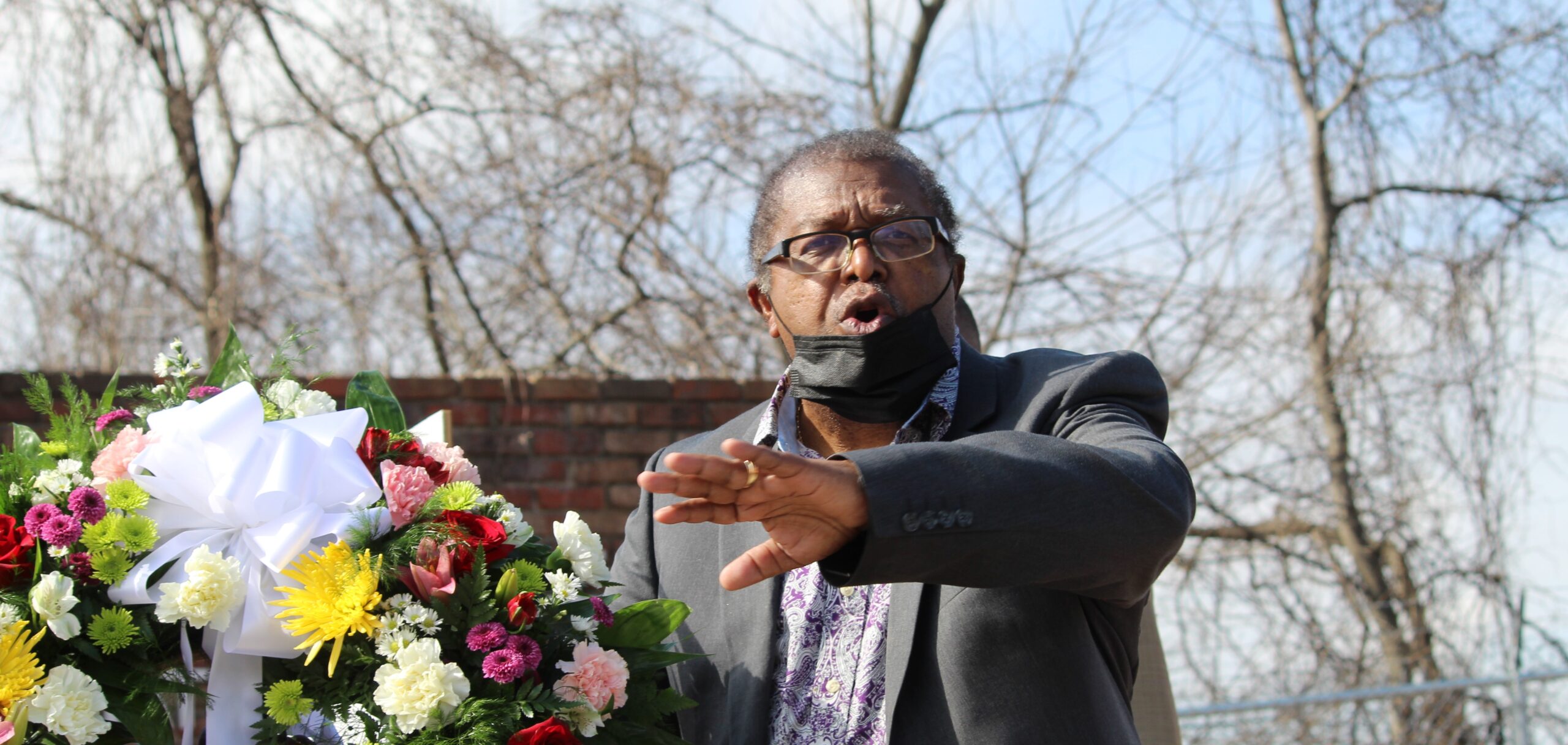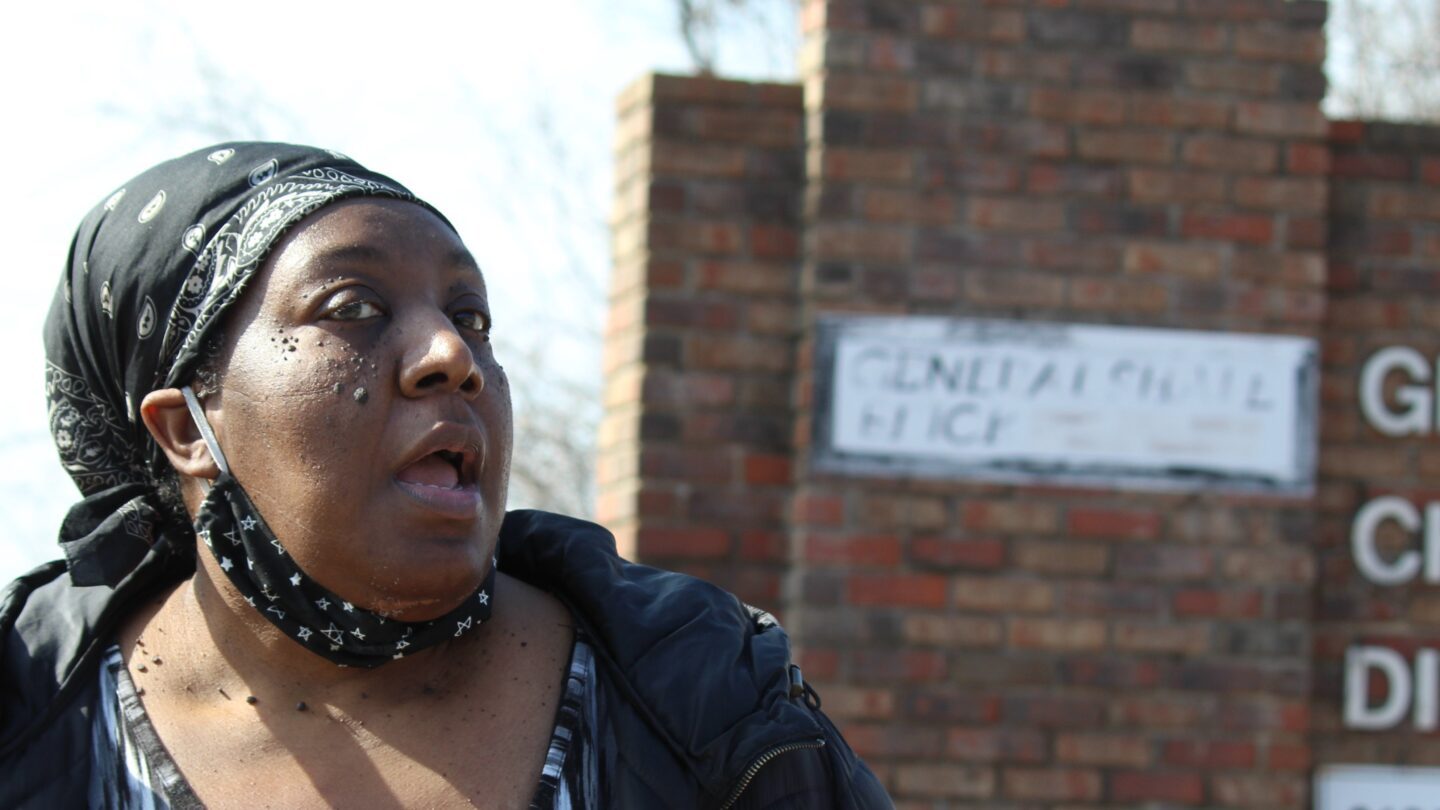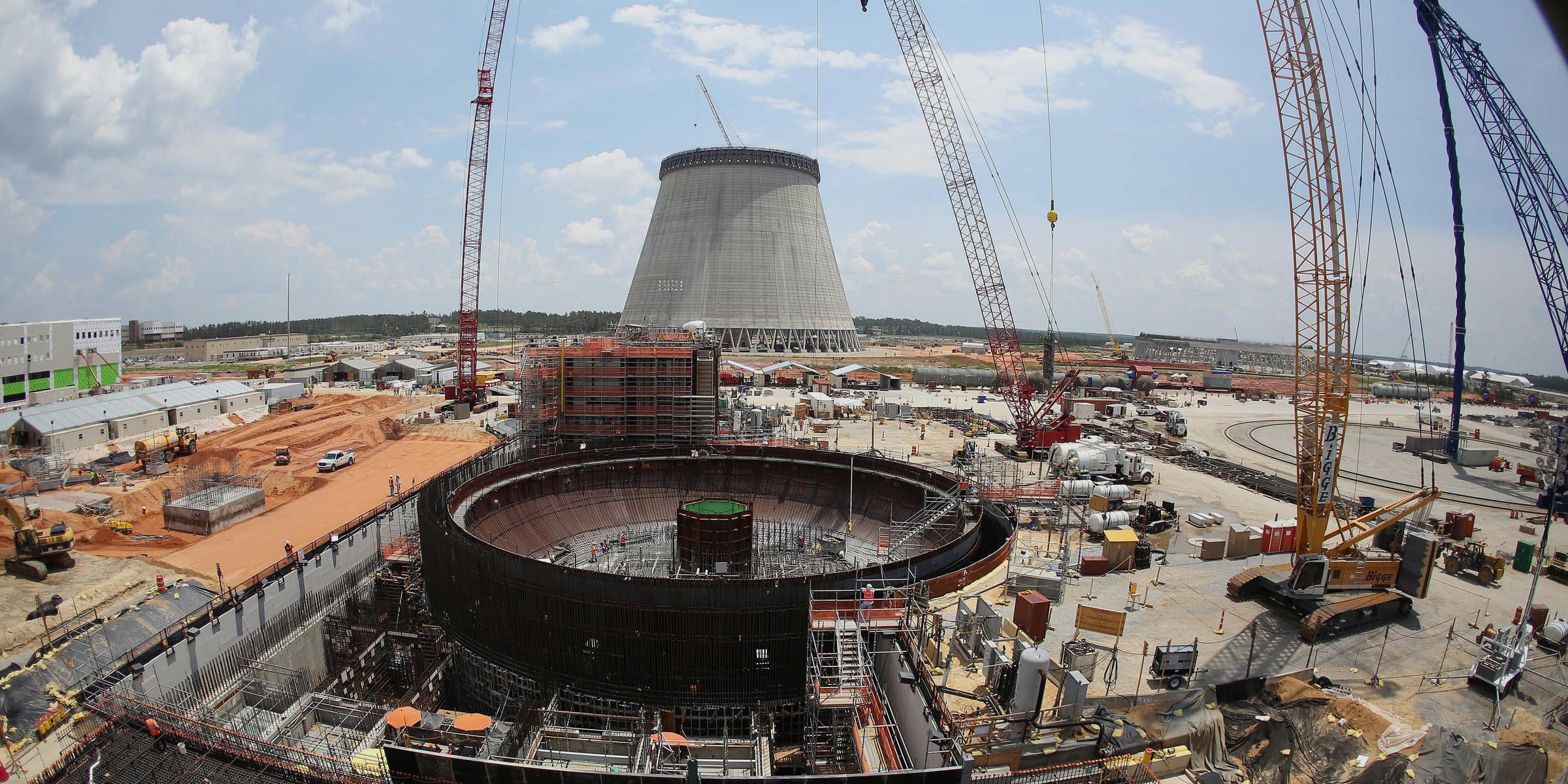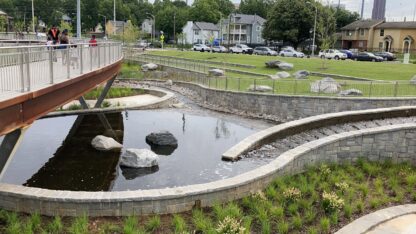Groups call for work to stop on Chattahoochee Brick site, citing plant’s past, environmental concerns

The Rev. Timothy McDonald of Atlanta prays next to a wreath outside the former site of the Chattahoochee Brick Co.
Emil Moffatt / WABE
Workers continued this week clearing the land at the site of the former Chattahoochee Brick Co. in northwest Atlanta.
Norfolk Southern, which has railroad tracks running alongside the old plant, is planning to use the site near I-285 as a fuel terminal.
But the use of forced labor and violence against Black workers at the site in the early 1900s has neighbors and community organizers calling for a memorial at the site instead.
With workers operating heavy equipment in the background behind a chain-link fence, community members held a press conference Tuesday, outlining their requests – for Norfolk Southern to stop work and abandon the site and for Atlanta city leaders to convince them to do so.
The Rev. Timothy McDonald, with Concerned Black Clergy of Atlanta, says not only were Black people forced to work at the plant, many also died – and might have been buried there as well.
“When I came here today as a minister, as a pastor of 45 years, I felt it,” said McDonald. “I felt those spirits. I felt the ancestors.”
McDonald said Black History Month is about more than just events in the past, it can be about actions taken today.
“Mayor Keisha Lance Bottoms, you have the power to stop this injustice, to stop this wrongdoing,” McDonald proclaimed. “City Council of Atlanta, you have the power to stop this madness.”
The mayor’s office did not provide a response to the pleas.
“We cannot say that Black lives matter and allow Norfolk Southern to build on the bodies of Black men and women,” said former state Sen. Vincent Ford, who called on Bottoms to use her contacts in the White House to intervene on a federal level as well.
The plant was the subject of the book “Slavery by Another Name” by Douglas Blackmon. It won the Pulitzer Prize in 2009.

Donna Stephens, an environmental activist, lives in the nearby English Park neighborhood. It’s named for former Atlanta Mayor and Confederate Army Capt. James English, who also owned the brick plant.
“The fact that I live in a neighborhood that bears his name, that has a park that bears his name, it’s very, very … I can’t even sum up the words for this,” said Stephens, who is with the group Chattahoochee Brick Company Descendants and the Proctor Creek Stewardship Council.
Stephens and others have environmental concerns about Norfolk Southern’s plans for a fuel terminal.
“The fact that we’re near the Chattahoochee that supplies water for three states, that empties into the Gulf of Mexico. The fact that Proctor Creek flows by,” said Stephens. “You can’t describe how many factors are involved in all of this.”
“We recognize that this site is historically significant and returning it to use comes with special responsibility to do so in a socially and environmentally responsible way,” read part of a statement from Norfolk Southern in response to calls for the development to stop. “We also share the belief that the atrocities of the Chattahoochee Brick Company should never be forgotten. We are committed to the development of an appropriate and respectful memorial to the lives lost, families impacted and the education of future generations.”








